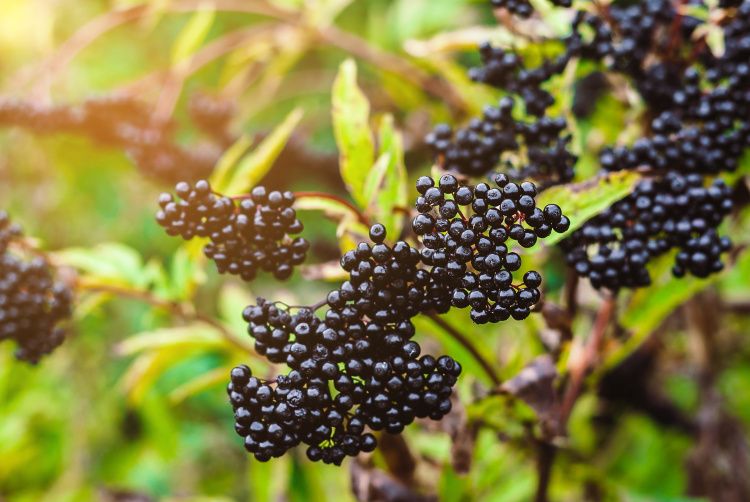Herbal supplement sales surpass $10 billion, says HerbalGram
HerbalGram's 2020 Herb Market Report shows that herbal supplement sales grew a record 17.3% in 2020.
Photo © stock.adobe.com/romankrykh

HerbalGram, published by the American Botanical Council (Austin, TX), released its 2020 Herb Market Report. Using US retail sales data provided by SPINS and the Nutrition Business Journal (NBJ), HerbalGram reports that herbal dietary supplement sales in the U.S. surpassed $10 billion for the first time. This is a record 17.3% increase from sales in 2019. According to HerbalGram, the segment has not experienced double-digit growth in at least two decades.
According to NBJ data, the mass market channel saw the strongest growth (25.1%), totaling $2.131 billion in 2020. Direct sales, which include online sales, grew 23.7% in 2020, more than twice its sales growth in 2019, to $6.179 billion. The natural, health food, and specialty channel saw the most modest growth at 1.6% in 2020, but its sales ($2.95 billion) have surpassed mass market for at least 15 years.
Based on SPINS data, the 52 weeks ending December 27, 2020, the herbal ingredients driving sales growth in the mainstream retail channels were elderberry, apple cider vinegar, and ashwagandha. In the mainstream multi-outlet channel, elderberry, apple cider vinegar, and ashwagandha sales grew 150.3%, 133.8%, and 185.2%, respectively. Elderberry sales have more than doubled each year since 2018 and in 2020, the herb displaced horehound, which is traditionally used for respiratory support, most recognizably in lozenges such as Ricola. In 2019, elderberry was the third highest selling herb in this channel behind horehound and echinacea, but in 2020 became the top selling herb, dropping horehound to number two. Echinacea fell to number seven, but still experienced 39.3% sales growth, while horehound fell in sales by 11.4%.
Elderberry has become well recognized as an ingredient that supports immune health, which was of particular interest to consumers during the pandemic, while the lozenges that contain horehound are more typically used to manage symptoms such as sore throat during illness, which could explain the ingredient’s decline. Elderberry also saw double digit growth in the U.S. natural channel, with a 68.2% increase in sales. In ingredient was the second highest grossing in the natural channel, just behind cannabidiol (CBD).
Despite being the highest grossing ingredient of the natural channel, CBD sales did decline 36.9% in 2020, the only ingredient in that channel to decline more than 30%. This is also the first time CBD has seen a decline in sales since 2017, when the ingredient breached the 40 top-selling ingredient of the natural channel. The ingredient also fell 30% in the mainstream multi-outlet channel. Compare this to its immense 872.3% sales growth in 2019. Despite projections that the ingredient would continue to grow, the pandemic appeared to interrupt its momentum amid shifting priorities. At this year’s 2021 SupplySide East, NBJ’s content and insights director Bill Giebler framed this decline as a potential positive. According to Giebler, CBD may be transitioning from a sensation (or fad) to a standard herbal ingredient (but still a popular one). This means that unlike a fad, CBD has planted its roots in the dietary supplement space, and will continue to be an option for consumers and drive dietary supplement sales.
One ingredient making its first appearance in the 40 top-selling herbal ingredients of the mainstream multi-outlet channel is beta-sitosterol. The ingredient saw the fourth highest sales increase in that channel with 52.3%. The most abundant plant sterol in the human diet, beta-sitosterol can be found in rice, wheat, soy, and peanuts. As a dietary supplement it is largely marketed to support prostate health, cardiovascular health, as well as cholesterol management. Beta-sitosterol products with prostate health claims made up the majority of sales in 2020 for the ingredient, says SPINS. The increase in mainstream sales of beta-sitosterol, says HerbalGram, may be due in part to an increased focus on age-related health concerns.
For more insights, the report can be read in full here.
Reference
Smith T et al. “Herbal Supplement Sales in US Increase by Record-Breaking 17.3% in 2020 Sales of immune health, stress relief, and heart health supplements grow during COVID-19 pandemic.” HerbalGram, no. 131 (2021): 52-65
Prinova acquires Aplinova to further increase its footprint in Latin America
April 7th 2025Prinova has recently announced the acquisition of Brazilian ingredients distributor Aplinova, which is a provider of specialty ingredients for a range of market segments that include food, beverage, supplements, and personal care.










